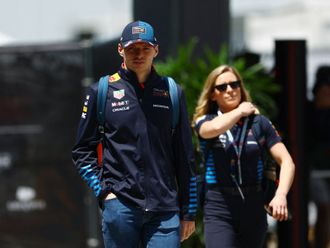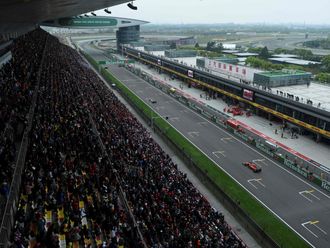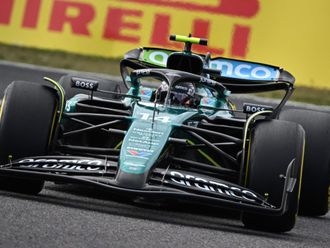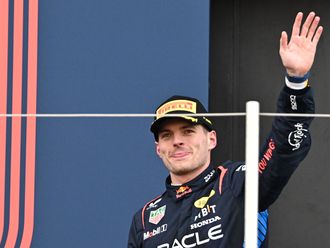Melbourne: Alan Jones, the 1980 Formula One world champion, says his Australian compatriot Mark Webber will be spurred to outperform teammate Sebastian Vettel this season by reports that the German is getting paid twice as much.
Vettel recently signed a lucrative contract extension with Red Bull that lasts to the end of the 2014 season and which enhanced status since claiming the 2010 drivers' championship.
Webber is now a distinct number two in the team, and Jones said that should ignite the Australian's fighting spirit.
"I believe Mark's brutally realistic attitude to racing can put all that aside and that he will throw everything at Vettel and be a championship contender," Jones said in Melbourne newspaper The Age.
"If Mark needs any more incentive, what better than Vettel's new multiyear contract, which I'm told is about double what Mark is getting. If it was me, I'd take great delight in beating the driver who the team bosses thought was worth twice as much."
Jones said Webber must assert himself early in the season by outperforming Vettel, after the German got the upper hand toward the end of 2010 after a close tussle in the first half of the campaign.
Adieu Hispania
"One of Mark's strengths is his ability to surround himself with a strong engineering support group focused totally on him," Jones said. "I reckon he has both the car and the self-belief to do it."
Hispania became the first team to fall victim to Formula One's reintroduced ‘107 per cent' rule and did not take its place in Sunday's race.
The rule dictates that in the first session of Saturday qualifying, any car that is not within seven per cent of the best time will not be able to enter the race.
With the cut-off time set at 1:31.266, Vitantonio Liuzzi could manage only 1:32.978 and Narain Karthikeyan had 1:34.293. There was some expectation that Hispania would be allowed to race with the permission of rival teams, as it was the first race of the season, and appealed to stewards along those lines, but were turned down.
"If you're out, you're out," FIA chief technical delegate Charlie Whiting said.
"However, there is provision in the rule for the stewards to allow a car in under exceptional circumstances, which could include setting a good time in a previous session, or if there were changeable weather conditions."
Hispania team principal Colin Kolles said: "In the end it just couldn't be, still I'm incredibly proud of my whole team.
The most surprising thing about Red Bull's speed advantage at the Australian Grand Prix is that it was achieved without the use of the KERS power-boost system.
Rubbing salt
Sebastian Vettel's pole position time was three-quarters of a second ahead of the best McLaren and 1.4 seconds better than the best Ferrari and to rub salt into their rivals' wounds, it was done without a KERS system that is estimated to cut about four tenths of a second per lap.
"I'm afraid we haven't had KERS on our car all weekend," team principal Christian Horner said after the race.
"It didn't look like we needed it."












